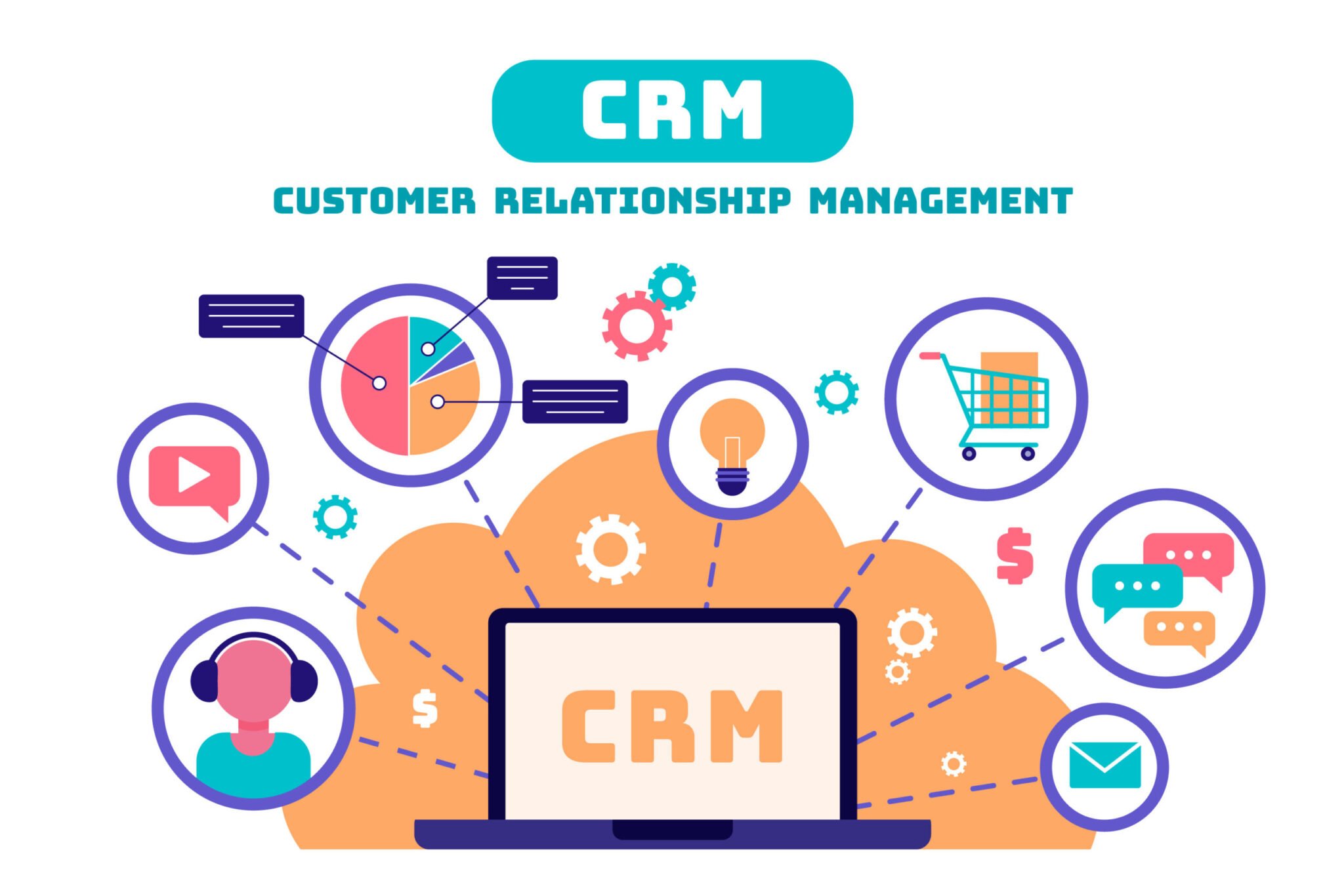What is an crm system – What is a CRM system? It’s the key to unlocking the full potential of customer relationships, empowering businesses to streamline operations, boost sales, and deliver exceptional service. Dive into this comprehensive guide to understand the essence of CRM systems and their transformative impact on modern business.
CRM systems serve as central hubs for managing customer interactions, providing a holistic view of each customer’s journey. They automate tasks, foster collaboration, and equip businesses with data-driven insights to make informed decisions.
Understanding CRM Systems

Customer Relationship Management (CRM) systems are software solutions designed to help businesses manage and track their interactions with customers. They provide a centralized platform for storing and accessing customer data, streamlining communication, and automating tasks, ultimately enhancing customer satisfaction and driving business growth.
Benefits of CRM Systems
- Improved customer service: CRM systems provide a comprehensive view of customer history, preferences, and interactions, enabling businesses to offer personalized and efficient support.
- Increased sales efficiency: By tracking sales pipelines and automating tasks, CRM systems help sales teams manage leads, prioritize prospects, and close deals more effectively.
- Enhanced marketing campaigns: CRM systems allow businesses to segment their customer base, tailor marketing messages, and track campaign performance, resulting in more targeted and successful marketing efforts.
- Improved decision-making: CRM systems provide valuable insights into customer behavior and trends, empowering businesses to make informed decisions based on data-driven analysis.
Types of CRM Systems
CRM systems vary in their capabilities and are typically classified into three main types:
- Operational CRM:Focuses on automating day-to-day customer-facing processes, such as sales, marketing, and customer service.
- Analytical CRM:Analyzes customer data to identify patterns, trends, and insights, providing businesses with valuable information for decision-making.
- Collaborative CRM:Facilitates collaboration between different departments and teams within a business, ensuring seamless customer experiences across all touchpoints.
Key Features of CRM Systems

CRM systems are equipped with a range of features that empower businesses to manage customer relationships effectively. These features include:
Contact Management
CRM systems centralize customer contact information, such as names, addresses, phone numbers, and email addresses. This enables businesses to easily access and manage customer data, ensuring seamless communication and personalized interactions.
Sales Management
CRM systems streamline the sales process by tracking leads, managing opportunities, and automating tasks. They provide insights into customer preferences and behavior, helping businesses optimize sales strategies and increase conversion rates.
Marketing Automation
CRM systems integrate with marketing automation tools, allowing businesses to create and execute targeted marketing campaigns. They segment customers based on demographics, interests, and behavior, delivering personalized messaging and improving campaign effectiveness.
Customer Service
CRM systems facilitate efficient customer service by providing a centralized platform for managing customer inquiries, tracking support tickets, and resolving issues. They enable businesses to respond promptly to customer requests and enhance overall customer satisfaction.
Reporting and Analytics, What is an crm system
CRM systems generate detailed reports and analytics that provide valuable insights into customer behavior, sales performance, and marketing effectiveness. This data empowers businesses to make informed decisions, identify areas for improvement, and optimize their CRM strategies.
Benefits of Implementing CRM Systems
CRM systems offer a multitude of advantages to businesses of all sizes and industries. By centralizing customer data, automating processes, and providing real-time insights, CRM systems empower businesses to:
- Increase sales by improving lead generation, conversion rates, and customer retention.
- Enhance customer service by providing personalized experiences, resolving issues quickly, and building stronger relationships.
- Streamline operations by automating tasks, reducing manual errors, and improving collaboration.
Case Study: Salesforce Success
Salesforce, a leading CRM provider, has helped countless businesses achieve remarkable results. For example, the real estate company Compass used Salesforce to increase its lead conversion rate by 30% and reduce customer service response time by 50%.
Improved Customer Engagement
CRM systems facilitate seamless communication across multiple channels, including email, phone, chat, and social media. This allows businesses to engage with customers on their preferred platforms, building stronger relationships and increasing satisfaction.
Data-Driven Decision Making
CRM systems provide comprehensive data analytics, enabling businesses to track key performance indicators (KPIs) and make informed decisions based on real-time insights. This data-driven approach helps businesses optimize their sales and marketing strategies, improve customer service, and identify areas for growth.
Challenges of Implementing CRM Systems

Implementing CRM systems can bring significant benefits, but it also comes with potential challenges. Understanding these obstacles and developing strategies to overcome them is crucial for a successful CRM implementation.
Data Integration
Integrating data from multiple sources into the CRM system can be a significant challenge. Data inconsistencies, duplicate entries, and lack of standardization can lead to inaccurate or incomplete information. To overcome this, businesses should establish clear data governance policies, implement data cleansing tools, and train staff on data entry best practices.
User Adoption
Getting users to adopt and effectively utilize the CRM system is another common challenge. Resistance to change, lack of training, and poor user experience can hinder adoption. To address this, businesses should involve users in the implementation process, provide comprehensive training, and ensure the CRM system aligns with their workflows.
Customization and Integration
CRM systems often require customization to meet specific business needs. However, excessive customization can increase complexity, maintenance costs, and compatibility issues with future upgrades. Businesses should carefully consider their customization requirements and prioritize essential features that align with their core business processes.
Cost and Time
Implementing a CRM system can be a significant investment in terms of cost and time. Businesses need to allocate adequate resources and plan for the time required for implementation, data migration, training, and ongoing maintenance.
Change Management
CRM implementation involves significant changes to business processes and workflows. Managing these changes effectively is crucial to minimize disruption and ensure a smooth transition. Businesses should communicate the benefits of the CRM system, provide support to users, and monitor progress to address any issues promptly.
Best Practices for CRM System Implementation
Implementing a CRM system successfully requires careful planning, data management, and user adoption. Here are some best practices to ensure a smooth and effective implementation:
Planning
- Define clear goals and objectives for implementing a CRM system.
- Identify key stakeholders and involve them in the planning process.
- Conduct a thorough assessment of existing business processes and data.
- Develop a detailed implementation plan that Artikels timelines, resources, and responsibilities.
Data Management
- Establish data governance policies and procedures to ensure data accuracy and consistency.
- Cleanse and standardize existing data before importing it into the CRM system.
- Integrate the CRM system with other business applications to ensure seamless data flow.
- Regularly monitor and maintain data quality to ensure the system’s effectiveness.
User Adoption
- Provide comprehensive training and support to users to ensure they understand and can effectively use the CRM system.
- Involve users in the implementation process to gather feedback and address their concerns.
- Establish clear expectations and metrics to measure user adoption and success.
- Continuously monitor user adoption and make adjustments as needed to improve engagement.
Future Trends in CRM Systems: What Is An Crm System
The future of CRM systems is bright, with emerging technologies like artificial intelligence (AI), machine learning (ML), and automation playing a significant role in shaping their capabilities. These advancements will empower businesses to enhance customer experiences, streamline operations, and gain valuable insights.
Artificial Intelligence and Machine Learning
AI and ML algorithms are being integrated into CRM systems to automate tasks, provide personalized recommendations, and improve decision-making. AI-powered chatbots can handle customer inquiries 24/7, while ML algorithms can analyze customer data to identify patterns, predict behavior, and offer tailored recommendations.
Automation
Automation is another key trend in CRM systems. Businesses can automate repetitive tasks such as lead generation, email marketing, and scheduling appointments. This frees up sales and customer service teams to focus on more strategic initiatives, such as building relationships and closing deals.
Preparing for the Future
Businesses can prepare for these advancements by:* Investing in training and development for employees to ensure they have the skills to leverage new technologies.
- Partnering with technology providers who are investing in innovation and can provide ongoing support.
- Adopting a data-driven approach to decision-making, ensuring they have the data and analytics capabilities to fully utilize AI and ML.
Closing Summary
In conclusion, CRM systems are indispensable tools for businesses seeking to elevate their customer engagement strategies. By embracing the power of CRM, businesses can forge lasting relationships, drive growth, and establish a competitive edge in today’s dynamic market landscape.